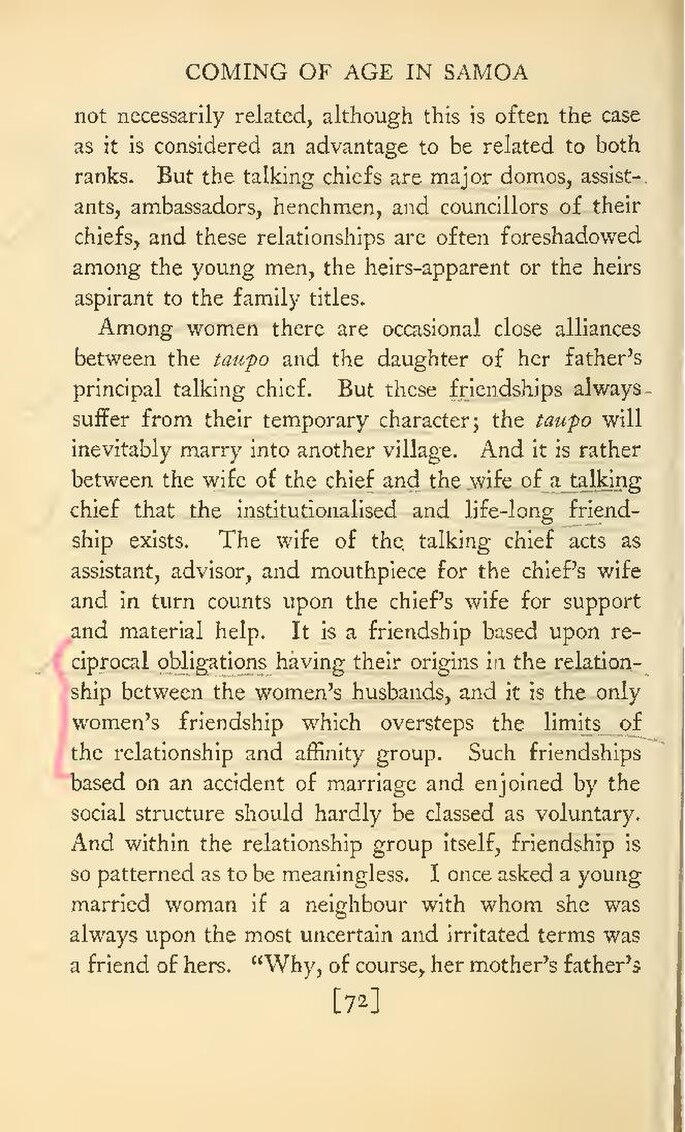Coming of Age in Samoa
not necessarily related, although this is often the case as it is considered an advantage to be related to both ranks. But the talking chiefs are major domos, assistants, ambassadors, henchmen, and councillors of their chiefs, and these relationships are often foreshadowed among the young men, the heirs-apparent or the heirs aspirant to the family titles.
Among women there are occasional close alliances between the taupo and the daughter of her father's principal talking chief. But these friendships always suffer from their temporary character; the taupo will inevitably marry into another village. And it is rather between the wife of the chief and the wife of a talking chief that the institutionalised and life-long friendship exists. The wife of the talking chief acts as assistant, advisor, and mouthpiece for the chief's wife and in turn counts upon the chief's wife for support and material help. It is a friendship based upon reciprocal obligations having their origins in the relationship between the women's husbands, and it is the only women's friendship which oversteps the limits of the relationship and affinity group. Such friendships based on an accident of marriage and enjoined by the social structure should hardly be classed as voluntary. And within the relationship group itself, friendship is so patterned as to be meaningless. I once asked a young married woman if a neighbour with whom she was always upon the most uncertain and irritated terms was a friend of hers. "Why, of course, her mother's father's
[72]
